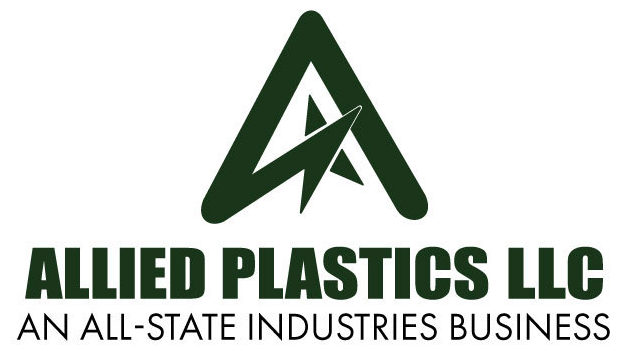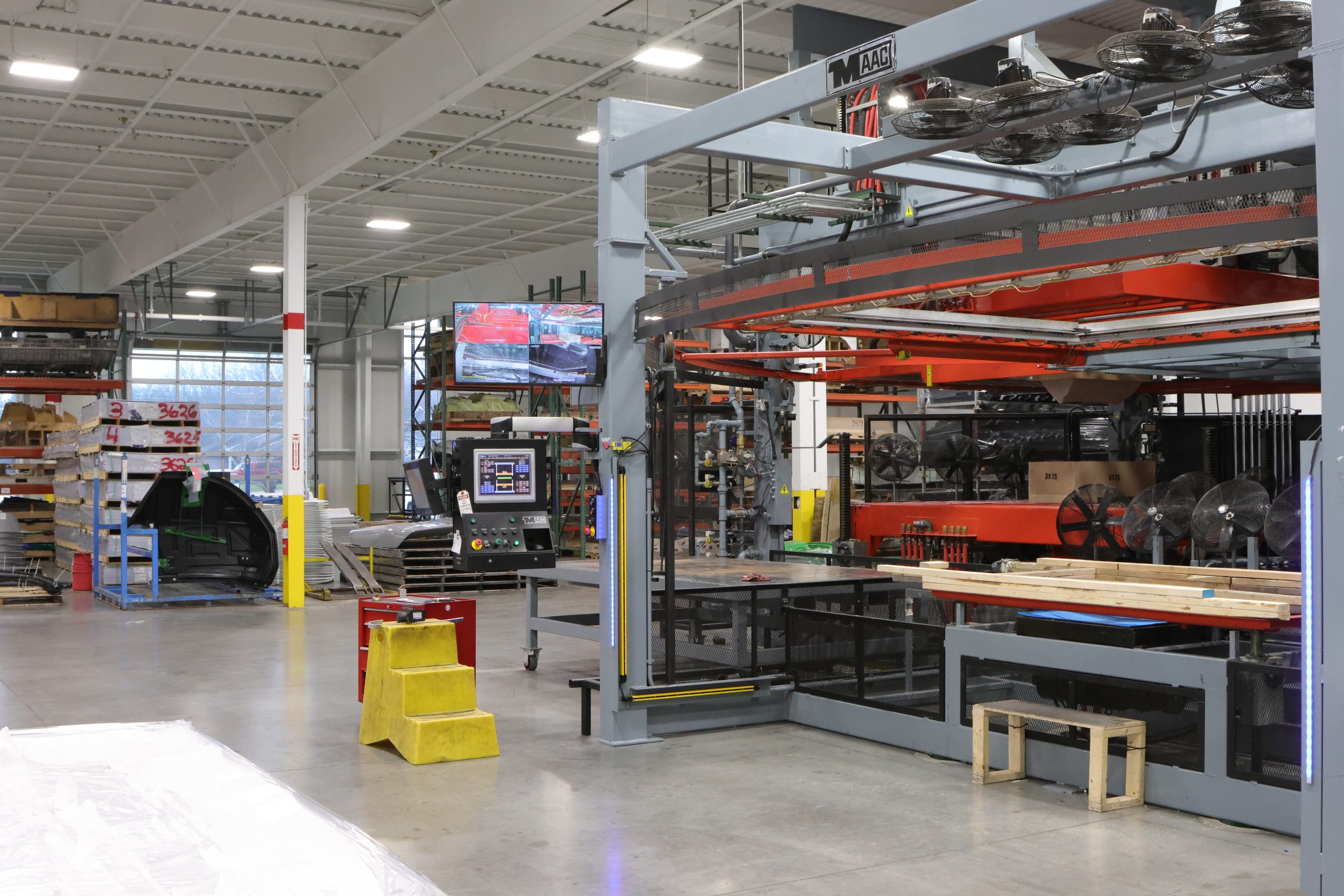In a competitive manufacturing landscape, industrial companies are constantly seeking production methods that combine efficiency, quality, and cost-effectiveness. Thermoforming plastic has emerged as a leading solution for industrial applications, offering unique advantages that make it ideal for a wide range of manufacturing needs. From agricultural equipment to automotive components, thermoforming delivers exceptional results across many industries.
Let’s take a closer look at the ways thermoforming plastic unlocks benefits and how Allied Plastics is positioned to deliver exceptional service in this key manufacturing process.
Want to learn more about thermoforming or other facets of our manufacturing expertise? Reach out to our experts today.
The Advantages of Thermoforming Plastic
Cost-Effective Manufacturing at Scale
One of the most significant advantages of thermoforming is its cost-effectiveness at production scale. Compared to injection molding and other plastic forming processes, thermoforming offers substantially lower tooling costs, making it an economical choice for medium to large production runs. The process requires less complex tooling, which not only reduces initial investment but also enables faster production startups.
The efficiency of thermoforming extends beyond tooling costs. The process allows for quick turnaround times, enabling manufacturers to meet demanding production schedules. This speed-to-market advantage is particularly valuable in industries where timing is crucial. Additionally, the process minimizes material waste through efficient sheet utilization and the ability to reprocess excess material, further reducing production costs.
Lastly, this process saves time and money by incorporating coloring into the process at the production stage. The color for the component or product comes from the sheet used to make it. This eliminates the need for a post-production finishing step completely.
Design Flexibility and Technical Capabilities
Thermoforming’s versatility in design is unmatched. Modern thermoforming equipment can handle impressively large parts — for instance, at Allied Plastics we can create parts of up to 9 feet by 14 feet, with draw depths reaching 60 inches. This capability makes it ideal for producing large industrial components that would be cost-prohibitive or impossible with other manufacturing methods.
The process offers multiple forming techniques to meet various design requirements:
- Twin Sheet Forming: Creates hollow parts with complex geometries
- Pressure Forming: Delivers sharper detail and deeper draws
- Vacuum Forming: Ideal for large, simpler shapes
Material Versatility
Thermoforming accommodates a wide range of industrial-grade materials, each offering specific advantages for different applications. Common materials include:
- High-Density Polyethylene (HDPE): Excellent chemical resistance and very good low-temperature impact
- Thermoplastic Polyolefin (TPO): Excellent low temp impact and low CLTE, no cap needed for weathering
- Acrylonitrile Butadiene Styrene (ABS): Easy to thermoform, bond, print, and paint. Better impact than HIPS & PP
- Polypropylene: Cost-effective and higher flex and HDT than PE, excellent chemical resistance.
- Polystyrene: Cost-effective with good formability and easy to bond, print and paint.
At Allied Plastics, we work with material thicknesses ranging from .060″ to .550″, accommodating various structural requirements. Additionally, different surface textures can be incorporated directly into the forming process, eliminating the need for secondary finishing operations.
Industrial Benefits of Thermoforming Plastic and Ensuring Quality in the Process
The benefits of thermoformed plastic parts in industrial applications are numerous. These components offer excellent durability and impact resistance, crucial for demanding industrial environments. Weather resistance makes them suitable for outdoor applications, while chemical resistance protects against exposure to harsh substances.
Thermoformed parts also provide significant weight reduction compared to metal alternatives, leading to reduced shipping costs and easier handling. The ability to integrate multiple features into a single part can simplify assembly processes and reduce overall part counts in finished products.
Quality Control and Consistency
Modern thermoforming operations ensure consistent quality through advanced technology and rigorous process controls. Computer-controlled forming parameters maintain consistency across production runs, while automated trimming using 5-axis CNC machines and 7-axis robots delivers precise finishing.
At Allied Plastics, our quality control protocols include:
- Dimensional verification using advanced measurement tools
- Material testing for consistency
- Visual inspection for surface quality
- Functional testing for specific applications
Engineering support throughout the process ensures that parts meet specifications and perform as intended in their final application.
Choose Allied Plastics for Thermoforming Expertise
Thermoforming plastic offers a powerful combination of benefits for industrial applications: cost-effectiveness at scale, design flexibility, material versatility, and consistent quality. As manufacturers continue to seek efficient, reliable production methods, thermoforming stands out as a solution that delivers both performance and value.
Allied Plastics is proud of our 30-year history of being a premier heavy-gauge thermoforming company. With a broad range of services, including plastic sheet extrusion, assembly and finishing, and engineering assistance, we’re a key component in the All-State Industries family of companies.
Whether you’re developing new products or looking to optimize existing ones, thermoforming’s capabilities make it worth considering for your industrial applications. Consult Allied Plastics to explore how this versatile process can benefit your specific manufacturing needs.

